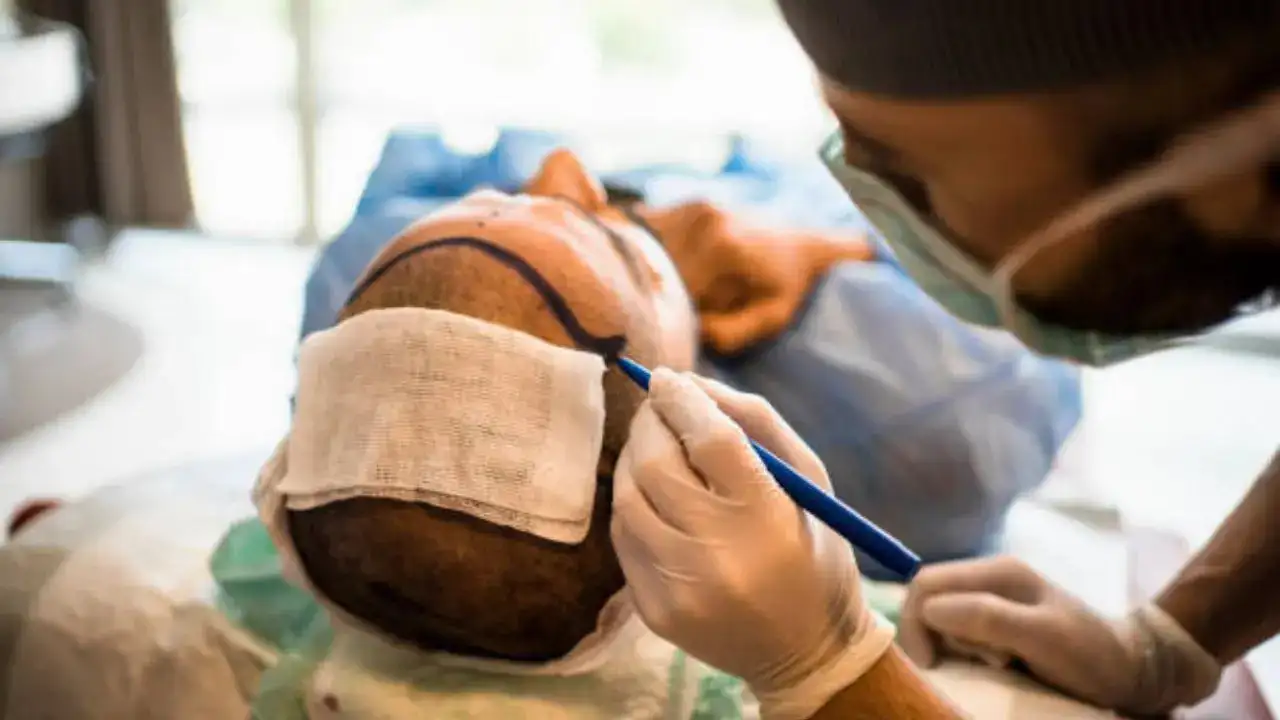
It is being alleged that the infection was likely acquired during the procedure and went untreated, resulting in a rapid and fatal decline
In a shocking tragedy, two men died after an allegedly botched hair transplant procedure at a private clinic in Kanpur. The incident has sparked public outrage, and police investigations have begun into the deaths of 40-year-old Vineet Dubey, whose wife said he developed a severe infection after undergoing a hair transplant, causing severe facial swelling, intense pain, and his death, just a day after the procedure.
Police had filed a complaint against the clinic after it was alleged that the infection was likely acquired during the procedure and went untreated, resulting in a rapid and fatal decline in Dubey's condition.
After Dubey’s demise, another case came to light—that of Mayank Katiyar, who also reportedly died after undergoing a hair transplant at the same clinic. According to Mayank’s brother, he underwent the procedure late last year, after which he complained of severe chest pain and facial swelling. However, despite seeking medical advice and receiving pain treatment, his condition worsened, and he died the next day.
How is a hair transplant done?
Hair transplant surgery moves hair to bald or thinning areas of the scalp. Also known as hair restoration or hair replacement, this procedure is usually for those who have already tried other hair loss treatments. Dermatologists or plastic surgeons perform hair transplants.
For the procedure, the doctors take grafts - small pieces of skin from areas of the body that have healthy hair. They call it the donor site, which is usually found on your head, at the back of your scalp, where hair tends to be thickest. The doctor would then move the grafts to hairless parts of the scalp. Once the transplanted skin heals, it should continue to grow hair.
Doctors perform the surgery in several ways, which include:
- Grafting
- Scalp reduction
- Flap surgery
- Tissue expansion
Who is a candidate for hair transplant surgery?
According to experts, you may be a candidate for hair replacement surgery if you:
- They are in good health
- Have realistic expectations about hair replacement results
- Still have areas of thick hair growth on your scalp
What are the risks and side effects of a hair transplant surgery?
Doctors say the risks of hair transplant are just like any other surgery, which include:
- Allergic reaction to anesthesia
- Excessive blood loss
- Failed grafts or flaps
- Severe infection.
- Loss of feeling on your scalp
- Scarring
Also, there can be severe side effects of hair transplant surgery, which are usually temporary. However, you may also experience the following issues on your scalp, at the donor site, or where the new hair is:
- A crust or scab, which can turn bloody
- Severe and constant itching
- Loss of feeling and numbness
- A throbbing pain
- Swelling
- Tightness on the scalp
When should you see your doctor after the surgery?
According to experts, there would be many follow-up visits with your doctor after the surgery is completed to make sure your scalp is healing well. However, you can visit the emergency department or contact your healthcare provider right away if you experience any of the following issues:
- A fever that does not subside
- Excessive bleeding from your scalp
- Severe redness or pain on your scalp
- Signs of infection, such as green or yellow pus oozing from the cuts in your scalp
- Swelling and inflammation on your face
